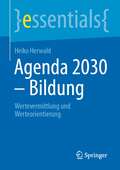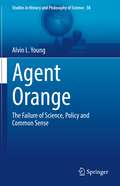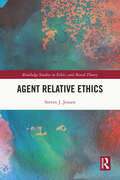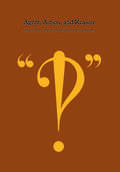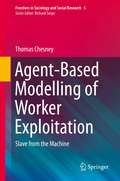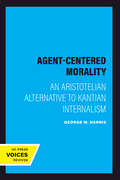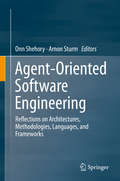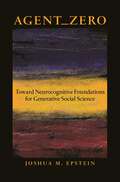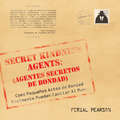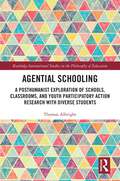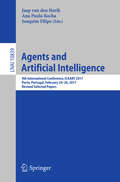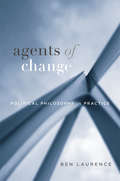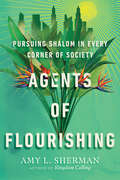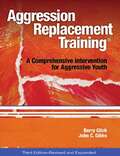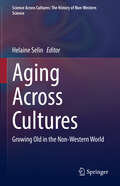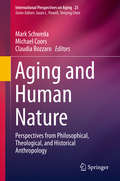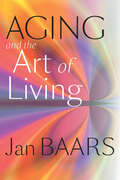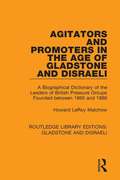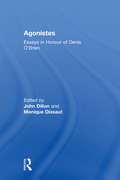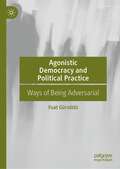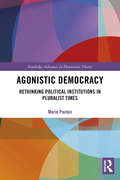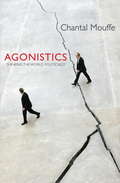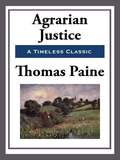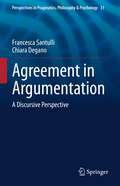- Table View
- List View
Agenda 2030 – Bildung: Wertevermittlung und Werteorientierung (essentials)
by Heiko HerwaldDie Agenda 2030 hat sich zum Ziel gesetzt, eine Welt ohne Armut, Hunger und Krankheit zu schaffen und dafür zu sorgen, dass jeder Mensch ein Leben frei von Furcht und ohne Unterdrückung führen kann. Um dies zu erreichen, muss jeder Mensch auch ein Recht auf Bildung haben. Ganzheitliche Bildungskonzepte sind hierbei von großer Bedeutung, da mit ihnen ein Umdenken zu einer nachhaltigen Lebensweise in allen Gesellschaftsbereichen erzielt werden kann. Denn ohne eine breite Unterstützung in der Bevölkerung können die Ziele der Agenda 2030 nicht umgesetzt werden. Eine weitere Aufgabe von Bildung ist es, soziale Klassenunterschiede abzubauen. Nach wie vor ist es in vielen Ländern aufgrund von fehlenden Ausbildungsmöglichkeiten nicht möglich, gesellschaftliche Klassenunterschiede zu überwinden. Im vierten der siebzehn Agenda 2030 Nachhaltigkeitsziele spielt das Thema Bildung eine zentrale Rolle. Es wird unter anderen gefordert, flächendeckend Bildungseinrichtungen zu schaffen, damit bis 2030 allen Menschen Zugang zu einer gleichberechtigten und hochwertigen Bildung gewährleistet werden kann.
Agent Orange: The Failure of Science, Policy and Common Sense (Studies in History and Philosophy of Science #58)
by Alvin L. YoungThis book tells the story of Agent Orange, its usage and the policies that surround it. Agent Orange contains a contaminant known as TCDD. It was the most widely used defoliant from 1965 – 1970 and became one of three major tactical herbicides used in Vietnam. More than 45 major health studies were conducted with Vietnam veterans from the United States, Australia, New Zealand, and Korea seeking a relationship between veterans’ health and TCDD. Allegations of birth defects in the families of Vietnam veterans and the Vietnamese represented a case study in propaganda and deliberate misinformation by the government of Vietnam. The Policies of the US Government implemented by Congress and the Department of Veterans Affairs (DVA) identified 17 recognized associated presumptive diseases that failed the tests of “cause and effect” and common sense. This book tells the story of Agent Orange, its usage, the health studies and those policies from a diverse range of perspectives, delving into science, statistics, history, policy and ethics. It is of interest to scholars engaged in history, political and social philosophy and ethics.
Agent Relative Ethics (Routledge Studies in Ethics and Moral Theory)
by Steven J JensenAgent Relative Ethics asks what the world would look like if we adopted agent relativity wholeheartedly, clinging to no shred of absolute morality. Alastair MacIntyre’s haunting image of a post-apocalyptic world, in which our knowledge of ethics has been fragmented, poses a contrast between modern morality and ancient ethics. The two stand divided along the fault line of the nature of the good. Modern ethics has placed its stake in the absolute good, while ancient ethics rests upon the foundation of the relative good. Following the lead of Bernard Williams, Agent Relative Ethics identifies alienation as a disturbing symptom of the present focus upon absolute goods. It then completes the diagnosis of the malady afflicting modern moral theory by clarifying the difference between absolute and relative goods. The remainder of the book explores how agent relativity can overcome the modern fragmentation of our ethical knowledge. Not just any relative goods can rectify the modern disorder. Only shared goods, belonging to a union of individuals, are sufficiently robust to overthrow the contemporary despotism of neutral goods. These shared goods exhibit many parallels with common sense morality, including partiality, impartiality, punishment, and an antagonism toward harmfully using others together with a more lenient attitude toward foreseeing harm. The final chapters probe the conditions, often unpalatable to the modern mind, by which ethics might be restored. Agent Relative Ethics will be of interest to scholars and advanced students working in ethics and moral theory, ancient ethics, and the history of philosophy.
Agent, Action, and Reason
by R. N. Bronaugh Robert W. Binkley Ausonio MarrasThis volume contains the papers and commentaries presented at the fourth philosophy colloquium at the University of Western Ontario in November 1968. The papers examine, from different points of view, the central problems in the philosophy of action. They include: "Agency" by Donald Davidson with comments by James Cornman; "On the Logic on International Action" by Roderick Chisholm with comments by Bruce Aune and a reply by Roderick Chisholm; "Wanting: Some Pitfalls" by R.M. Hare with comments by David Gauthier and D.F. Pears; "Two Problems about Reasons for Actions" by D.F. Pears with comments by Irving Thalberg. Also included is an extensive bibliography of recent work in the philosophy of action. The contributors are all well known for their work in this branch of philosophy; their papers present a cross section of the best work being done in the area at the present time.
Agent-Based Modelling of Worker Exploitation: Slave from the Machine (Frontiers in Sociology and Social Research #5)
by Thomas ChesneyThis book illustrates the potential for computer simulation in the study of modern slavery and worker abuse, and by extension in all social issues. It lays out a philosophy of how agent-based modelling can be used in the social sciences. In addressing modern slavery, Chesney considers precarious work that is vulnerable to abuse, like sweat-shop labour and prostitution, and shows how agent modelling can be used to study, understand and fight abuse in these areas. He explores the philosophy, application and practice of agent modelling through the popular and free software NetLogo. This topical book is grounded in the technology needed to address the messy, chaotic, real world problems that humanity faces—in this case the serious problem of abuse at work—but equally in the social sciences which are needed to avoid the unintended consequences inherent to human responses. It includes a short but extensive NetLogo guide which readers can use to quickly learn this software and go on to develop complex models. This is an important book for students and researchers of computational social science and others interested in agent-based modelling.
Agent-Centered Morality: An Aristotelian Alternative to Kantian Internalism
by George W. HarrisWhat kinds of persons do we aspire to be, and how do our aspirations fit with our ideas of rationality? In Agent-Centered Morality, George Harris argues that most of us aspire to a certain sort of integrity: We wish to be respectful of and sympathetic to others, and to be loving parents, friends, and members of our communities. Against a prevailing Kantian consensus, Harris offers an Aristotelian view of the problems presented by practical reason, problems of integrating all our concerns into a coherent, meaningful life in a way that preserves our integrity. The task of solving these problems is "the integration test." Systematically addressing the work of major Kantian thinkers, Harris shows that even the most advanced contemporary versions of the Kantian view fail to integrate all of the values that correspond to what we call a moral life. By demonstrating how the meaning of life and practical reason are internally related, he constructs from Aristotle's thought a conceptual scheme that successfully integrates all the characteristics that make a life meaningful, without jeopardizing the place of any. Harris's elucidation of this approach is a major contribution to debates on human agency, practical reason, and morality.
Agent-Oriented Software Engineering: Reflections on Architectures, Methodologies, Languages, and Frameworks
by Onn Shehory Arnon SturmWith this book, Onn Shehory and Arnon Sturm, together with further contributors, introduce the reader to various facets of agent-oriented software engineering (AOSE). They provide a selected collection of state-of-the-art findings, which combines research from information systems, artificial intelligence, distributed systems and software engineering and covers essential development aspects of agent-based systems. The book chapters are organized into five parts. The first part introduces the AOSE domain in general, including introduction to agents and the peculiarities of software engineering for developing MAS. The second part describes general aspects of AOSE, like architectural models, design patterns and communication. Next, part three discusses AOSE methodologies and associated research directions and elaborates on Prometheus, O-MaSE and INGENIAS. Part four then addresses agent-oriented programming languages. Finally, the fifth part presents studies related to the implementation of agents and multi-agent systems. The book not only provides a comprehensive review of design approaches for specifying agent-based systems, but also covers implementation aspects such as communication, standards and tools and environments for developing agent-based systems. It is thus of interest to researchers, practitioners and students who are interested in exploring the agent paradigm for developing software systems.
Agent_Zero: Toward Neurocognitive Foundations for Generative Social Science (Princeton Studies in Complexity #25)
by Joshua M. EpsteinThe Final Volume of the Groundbreaking Trilogy on Agent-Based ModelingIn this pioneering synthesis, Joshua Epstein introduces a new theoretical entity: Agent_Zero. This software individual, or "agent," is endowed with distinct emotional/affective, cognitive/deliberative, and social modules. Grounded in contemporary neuroscience, these internal components interact to generate observed, often far-from-rational, individual behavior. When multiple agents of this new type move and interact spatially, they collectively generate an astonishing range of dynamics spanning the fields of social conflict, psychology, public health, law, network science, and economics.Epstein weaves a computational tapestry with threads from Plato, Hume, Darwin, Pavlov, Smith, Tolstoy, Marx, James, and Dostoevsky, among others. This transformative synthesis of social philosophy, cognitive neuroscience, and agent-based modeling will fascinate scholars and students of every stripe. Epstein's computer programs are provided in the book or on its Princeton University Press website, along with movies of his "computational parables.?Agent_Zero is a signal departure in what it includes (e.g., a new synthesis of neurally grounded internal modules), what it eschews (e.g., standard behavioral imitation), the phenomena it generates (from genocide to financial panic), and the modeling arsenal it offers the scientific community. For generative social science, Agent_Zero presents a groundbreaking vision and the tools to realize it.
Agentes Secretos De Bondad: Como Pequenos Actos de Bondad Realmente Pueden Cambiar Al Mundo
by Ferial PearsonFerial Pearson nació y fue criada en Nairobi, Kenya. Es la mayor de cuatro hijas y la primera en su familia directa en ir a la universidad. Después de graduarse del Colegio Poponi en 1997, dejó África para asistir a Gustavus Adolphus College en St Peter, Minnesota, donde en 2001 obtuvo su licenciatura en Enseñanza de Literatura de Artes de la comunicación, y donde conoció a su esposo, Daniel. Se le ofreció la oportunidad de enseñar en el Distrito Escolar Público de Omaha en South High School ese otoño, donde enseñó inglés y lectura. Durante su tiempo allí, también se desempeñó como patrocinadora del Gay-Straight Alliance y Unity Club, y recibió premios nacionales por su trabajo con los estudiantes y la comunidad. Estos incluyen el Premio Virginia Uribe de la Asociación Nacional de Educación por el Liderazgo Creativo en Derechos Humanos en 2012, el Premio al Educador del Año de la Cadena Educativa de Gays, Lesbianas, Heterosexuales (GLSEN por sus siglas en inglés) en 2011, y fue representante de Nebraska y finalistas del Consejo Nacional de Maestros de Inglés Académico Premio a la Libertad en 2012. Localmente, ha sido galardonada con el Premio de Relaciones Humanas de la Asociación Educativa Omaha 2011, el Premio Profesional Prometedor 2012 de la Universidad de Nebraska en Omaha, y el Premio Anti-Intimidación 2011 de RESPECT y un Premio TOYO (Diez Jóvenes Omahans Sobresalientes) en 2014. También obtuvo su maestría en Currículo e Instrucción con un Certificado de Posgrado en Instrucción Urbana de la Universidad de Nebraska en Omaha en 2009. Ferial dejó Omaha South High School para trabajar como Asesora de Talento para la Fundación Avenue Scholars y enseñó para ellos en Ralston High School durante dos años hasta 2013, tiempo durante el cual creó su proyecto Secret Kindness Agents, que se convirtió en el tema de un libro, un TEDx Talk, y fue el foco de su disertación. Actualmente es Profesora Asistente en la Universidad de Nebraska en Omaha en el Departamento de Educación de Maestros. En 2016, recibió el premio Stephen Sondheim Inspirational Teacher del Centro Kennedy. En 2017, ella recibió su Ed. D. en Liderazgo Educativo. Ella vive en Ralston, Nebraska con su esposo Daniel, su hijo Ilahi y su hija Iman.
Agential Schooling: A Posthumanist Exploration of Schools, Classrooms, and Youth Participatory Action Research with Diverse Students (Routledge International Studies in the Philosophy of Education)
by Thomas AlbrightThis book examines how schooling—the restrictive, oppressive, and disciplinary force in much U.S. education—is protean and has the agency to change in response to challenges. Posthumanist theories were engaged with to better understand the intra‑actions between human, nonhuman, and discursive actors.Utilizing participant observations, interviews, cognitive maps, diffraction, and theory, it argues that traditional humanistic approaches to oppression in U.S. education are inadequate to understanding the ongoing power of schooling. In conversation with these paradigms, this book lays out an agential realist (Barad, 2007) view of schooling and argues in favor of examining schooling itself as an agent, sustained and bolstered by a wide range of other agents acting in and around schools—from clipboards and handouts to adultism and racism. This approach offers a new perspective on how oppressive forces like racism, sexism, and adultism adapt and continue to operate in spaces deliberately designed to oppose them, including Ethnic Studies programs and YPAR projects. At the same time, this book rejects totalizing arguments about schooling’s hegemony and shows how a wider recognition of nonhuman agency can help us not only understand but also work to resist such oppressions.It will appeal to scholars, faculty, and upper‑level students with interests in critical youth studies, educational equity, Ethnic Studies, youth participatory action research, and posthumanism.
Agents and Artificial Intelligence: 9th International Conference, ICAART 2017, Porto, Portugal, February 24–26, 2017, Revised Selected Papers (Lecture Notes in Computer Science #10839)
by Joaquim Filipe Jaap van den Herik Ana Paula RochaThis book contains the revised and extended versions of selected papers from the 9th International Conference, ICAART 2017, held in Porto, Portugal, in February 24-26, 2017.The 11 full papers were carefully reviewed and selected from 158 initial submissions. The papers are organized in two tracks. The first focuses on agents, multi-agent systems, software platforms, distributed problem solving and distributed AI in general. The second track focuses mainly on artificial intelligence, knowledge representation, planning, learning, scheduling, perception, reactive AI systems, evolutionary computing, and other topics related to intelligent systems and computer intelligence.
Agents of Change: Political Philosophy in Practice
by Ben LaurenceAn incisive argument for the relevance of political philosophy and its possibility of effecting change. The appeal of political philosophy is that it will answer questions about justice for the sake of political action. But contemporary political philosophy struggles to live up to this promise. Since the death of John Rawls, political philosophers have become absorbed in methodological debates, leading to an impasse between two unattractive tendencies: utopians argue that philosophy should focus uncompromisingly on abstract questions of justice, while pragmatists argue that we should concern ourselves only with local efforts to ameliorate injustice. Agents of Change shows a way forward. Ben Laurence argues that we can combine utopian justice and the pragmatic response to injustice in a political philosophy that unifies theory and practice in pursuit of change. Political philosophy, on this view, is not a purely normative theory disconnected from practice. Rather, political philosophy is itself a practice—an exercise of practical reason issuing in action. Laurence contends that this exercise begins in ordinary life with the confrontation with injustice. Philosophy draws ideas about justice from this encounter to be pursued through political action. Laurence shows that the task of political philosophy is not complete until it asks the question “What is to be done?” and deliberates actionable answers.
Agents of Flourishing: Pursuing Shalom in Every Corner of Society (Made to Flourish Resources)
by Amy L. ShermanGod calls Christians to participate in his redemptive mission in every sphere of life.
Aggression Replacement Training®: A Comprehensive Intervention for Aggressive Youth
by John C. Gibbs Barry GlickThis is a newly-revised and expanded edition of the groundbreaking program originally developed by Dr. Arnold P. Goldstein and Dr. Barry Glick. Aggression Replacement Training ART offers a powerful intervention for teaching at-risk youth to understand and replace aggression and antisocial behavior with positive alternatives. <p><p>Includes user-friendly session-by-session guidelines for implementation. The book provides a coordinated, three-part training approach: Prosocial Skills, Anger Control and Moral Reasoning for grades 6 to 12. The authors address trainee motivation and resistance, enhancing performance generalization, and recent applications in schools and other settings. Appendixes include guidelines, checklists, moral reasoning problem situations, and summaries of outcome evaluations.
Aging Across Cultures: Growing Old in the Non-Western World (Science Across Cultures: The History of Non-Western Science #10)
by Helaine SelinThis volume brings together chapters about aging in many non-Western cultures, from Africa and Asia to South America, from American Indians to Australian and Hawaii Aboriginals. It also includes articles on other issues of aging, such as falling, dementia, and elder abuse. It was thought that in Africa or Asia, elders were revered and taken care of. This certainly used to be the case. But the Western way has moved into these places, and we now find that elders are often left on their own or in institutions, as younger people have migrated to other cities and even countries. Grandparents often find themselves being parents to their grandchildren, a far cry from the kind of life they believed they would have as they aged. This book will explore all these issues and will be of use to students and researchers in this relatively new field.
Aging and Human Nature: Perspectives from Philosophical, Theological, and Historical Anthropology (International Perspectives on Aging #25)
by Mark Schweda Michael Coors Claudia BozzaroThis book focuses on ageing as a topic of philosophical, theological, and historical anthropology. It provides a systematic inventory of fundamental theoretical questions and assumptions involved in the discussion of ageing and old age. What does it mean for human beings to grow old and become more vulnerable and dependent? How can we understand the manifestations of ageing and old age in the human body? How should we interpret the processes of change in the temporal course of a human life? What impact does old age have on the social dimensions of human existence? In order to tackle these questions, the volume brings together internationally distinguished scholars from the fields of philosophy, theology, cultural studies, social gerontology, and ageing studies. The collection of their original articles makes a twofold contribution to contemporary academic discourse. On one hand, it helps to clarify and deepen our understanding of ageing and old age by examining it from the fundamental point of view of philosophical, theological, and historical anthropology. At the same time, it also enhances and expands the discourses of philosophical, theological, and historical anthropology by systematically taking into account that human beings are essentially ageing creatures.
Aging and the Art of Living
by Jan BaarsBaars explores philosophers from Plato to Foucault as they consider the meaning of aging—and wisdom—in our society.In this deeply considered meditation on aging in Western culture, Jan Baars argues that, in today’s world, living longer does not necessarily mean living better. He contends that there has been an overall loss of respect for aging, to the point that understanding and "dealing with" aging people has become a process focused on the decline of potential and the advance of disease rather than on the accumulation of wisdom and the creation of new skills. To make his case, Baars compares and contrasts the works of such modern-era thinkers as Foucault, Heidegger, and Husserl with the thought of Plato, Aristotle, Sophocles, Cicero, and other Ancient and Stoic philosophers. He shows how people in the classical period—less able to control health hazards—had a far better sense of the provisional nature of living, which led to a philosophical and religious emphasis on cultivating the art of living and the idea of wisdom. This is not to say that modern society’s assessments of aging are insignificant, but they do need to balance an emphasis on the measuring of age with the concept of "living in time." Gerontologists, philosophers, and students will find Baars' discussion to be a powerful, perceptive conversation starter.
Agitators and Promoters in the Age of Gladstone and Disraeli: A Biographical Dictionary of the Leaders of British Pressure Groups Founded Between 1865 and 1886 (Routledge Library Editions: Gladstone and Disraeli #2)
by Howard LeRoy MalchowOriginally published in 1983, Agitators and Promoters in the Age of Gladstone and Disraeli brings together the lives of thousands of persons, some famous, most modest and obscure, who were joined a century ago in pursuit of causes promising, a more just world which embodied much of the life and substance of the politics of during this time of transition. The book focuses on not simply the political Establishment but the members of government and legislature with their paid functionaries and party hacks, and much of the politicised sub-elite of a generation, including some three thousand persons from many layers of Victorian life. These are the organisers and leaders, the agitators and promoters of a host of causes.
Agonistes: Essays in Honour of Denis O'Brien
by Monique DixsautAgonistes comprises a collection of essays presented by his friends and colleagues to Denis O'Brien, former Directeur de recherché at the Centre Nationale de Recherché Scientifique, representing the full range of his scholarly interests in the field of ancient philosophy, from the Presocratics, through Plato, Aristotle and Hellenistic philosophy, to Plotinus and later Neoplatonism. The honorand himself leads off with a stimulating Apologia, sketching the development of his scholarly interests and dwelling on the issues that have chiefly concerned him. The contributions then follow in chronological order, under four headings: I From the Presocratics to Plato (Frère, Brancacci); II From Plato to the Stoics (Brisson, Casertano, Dixsaut, Kühn, McCabe, Narcy, Rowe, Goulet); III Plotinus and the Neoplatonist Tradition (O'Meara, Sakonji, Gersh, Steel, Dillon, Smith); IV Saint Augustine and After (Pépin, Rist, Brague/Freudenthal). They comprise a significant representation of the most distinguished scholars both on the continent and in the British Isles, and fairly represent the wide influence which Denis O'Brien has had on his contemporaries. The volume includes also a full bibliography of O'Brien's works.
Agonistic Democracy
by Mark WenmanThis pioneering book delivers a systematic account of agonistic democracy, and a much-needed analysis of the core components of agonism: pluralism, tragedy, and the value of conflict. It also traces the history of these ideas, identifying the connections with republicanism and with Greek antiquity. Mark Wenman presents a critical appraisal of the leading contemporary proponents of agonism and, in a series of well-crafted and comprehensive discussions, brings these thinkers into debate with one another, as well as with the post-structuralist and continental theorists who influence them. Wenman draws extensively on Hannah Arendt, and stresses the creative power of human action as augmentation and revolution. He also reworks Arendt's discussion of reflective judgement to present an alternative style of agonism, one where the democratic contest is linked to the emergence of a militant form of cosmopolitanism, and to prospects for historical change in the context of neoliberal globalisation.
Agonistic Democracy and Political Practice: Ways of Being Adversarial
by Fuat GürsözlüThis book explores the implications of agonistic democratic theory for political practice. Fuat Gürsözlü argues that at a time when political parties exacerbate political division, political protesters are characterized as looters and terrorists, and extreme partisanship and authoritarian tendencies are on the rise, the agonistic approach offers a much-needed rethinking of political practice to critically understand challenges to democracy and envision more democratic, inclusive, and peaceful alternatives. Inspired by Chantal Mouffe’s agonistic theory and drawing on insights of other prominent agonistic scholars, Gürsözlü offers a distinctive approach that develops the connections between the agonistic approach and political practice. His main claim is that approaching democratic politics from an agonistic perspective changes the way we understand the nature of democratic society, the place of political protest in democracy, the nature of adversarial engagement, and the democratic function of political parties. The book also advances an account of agonistic peace that is best fitted to the pluralistic and inherently conflictual nature of democratic societies. This book should be of interest to anyone working in the field of contemporary political theory, political philosophy, peace studies, and philosophy of peace.
Agonistic Democracy: Rethinking Political Institutions in Pluralist Times (Routledge Advances in Democratic Theory)
by Marie PaxtonAgonistic Democracy explores how theoretical concepts from agonistic democracy can inform institutional design in order to mediate conflict in multicultural, pluralist societies. Drawing on the work of Foucault, Nietzsche, Schmitt, and Arendt, Marie Paxton outlines the importance of their themes of public contestation, contingency and necessary interdependency for contemporary agonistic thinkers. Paxton delineates three distinct approaches to agonistic democracy: David Owen’s perfectionist agonism, Mouffe’s adversarial agonism, and William Connolly and James Tully’s inclusive agonism. Paxton demonstrates how each is fundamental to enabling citizens to cultivate better virtues for themselves and society (Owen), motivating democratic engagement (Mouffe) and enhancing relations of respect and understanding between conflicting citizens (Connolly and Tully). Situated within the context of a deeply polarised post-Trump America and post-Brexit Britain, this book reveals the need to rethink our approach to conflict mediation through democratic institutions. Pulling together insights from experimental research with deliberative democratic innovations, Paxton explores how agonistic theory might be institutionalised further. Through discussing ways in which agonistic institutions might be developed to render democracy more virtuous, more engaging, and more inclusive, Agonistic Democracy provides a unique resource for students of contemporary political theory.
Agonistics
by Chantal MouffePolitical conflict in our society is inevitable, and its results are often far from negative. How then should we deal with the intractable differences arising from complex modern culture? Developing her groundbreaking political philosophy of agonistics - the search for a radical and plural democracy - Chantal Mouffe examines international relations, strategies for radical politics, the future of Europe and the politics of artistic practices. She shows that in many circumstances where no alternatives seem possible, agonistics offers a new road map for change. Engaging with cosmopolitanism, post-operaism, and theories of multiple modernities she argues in favour of a multipolar world with real cultural and political pluralism.From the Trade Paperback edition.
Agrarian Justice
by Thomas PaineThomas Paine (1737-1809) was an author, pamphleteer, radical, inventor, intellectual, revolutionary, and one of the Founding Fathers of the United States. He has been called "a corsetmaker by trade, a journalist by profession, and a propagandist by inclination." Born in Thetford, in the English county of Norfolk, Paine emigrated to the British American colonies in 1774 in time to participate in the American Revolution. His principal contributions were the powerful, widely read pamphlet "Common Sense" (1776), advocating colonial America's independence from Great Britain, and "The American Crisis" (1776-1783), a pro-revolutionary pamphlet series. Paine was also deeply involved in the early stages of the French Revolution. He wrote the "Rights of Man" (1791), in part a defence of the French Revolution against its critics, in particular the British statesman Edmund Burke. Despite not speaking French, he was elected to the French National Convention in 1792. The Girondists regarded him as an ally, so, the Montagnards, especially Robespierre, regarded him as an enemy. In December of 1793, he was arrested and imprisoned in Paris, then released in 1794. He became notorious because of "The Age of Reason" (1793-94), his book advocating deism, promoting reason and freethinking, and arguing against institutionalized religion and Christian doctrines. He also wrote the pamphlet "Agrarian Justice" (1795), discussing the origins of property, and introduced the concept of a guaranteed minimum income.
Agreement in Argumentation: A Discursive Perspective (Perspectives in Pragmatics, Philosophy & Psychology #31)
by Francesca Santulli Chiara DeganoThis book explores the construction of agreement in the argumentative process, aiming to investigate how the activation of shared knowledge, values and beliefs leads to the creation of a common ground between the speaker and the audience in the pursuit of persuasion. In the first part of the book, the authors examine agreement from a historical and theoretical perspective, setting in relation major ancient and contemporary approaches to argumentation, with special regard for the notions of ethos, objects of agreement, starting points and topoi, all with a focus on their deployment in discourse. This is complemented with a compendium of linguistic resources that can be exploited for the discursive construction of agreement, offering a principled selection of structures across different levels of language description. The second part of the book is devoted to the investigation of actual uses of agreement in a choice of institutional genres within the domain of the US presidential elections: the Presidential Announcement, the TV debate and the Inaugural Address. Due to their political relevance and cultural salience, these genres provide an ideal interface for observing the interplay of discursive and argumentative components, against the backdrop of a shared cultural heritage, rich with intertextual references. The application of the theoretical framework developed in the first part of the book to the analysis of real political discourse carried out in the second is the distinguishing feature of this volume, making it of interest to linguists and argumentation scholars, as well as to political scientists and communicators.
